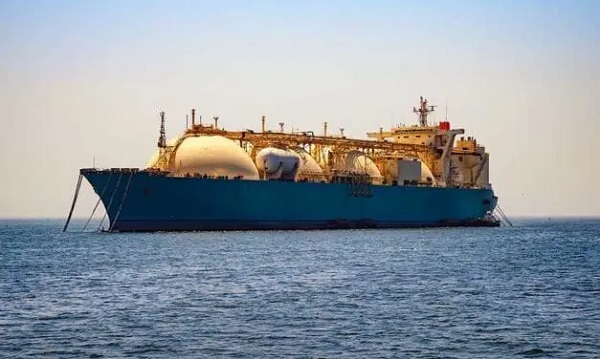Business
We’re paying the bills, why shouldn’t we have a say?


 By David Clinton
By David Clinton
Shaping Government Spending Choices to Reflect Taxpayer Preferences
Technically, the word “democracy” means “rule of the people”. But we all know that the ability to throw the bums out every few years is a poor substitute for “rule”. And as I’ve already demonstrated, the last set of bums you sent to Ottawa are 19 times more likely than not to simply vote along party lines. So who they are as individuals barely even matters.
This story isn’t new, and it hasn’t even got a decent villain. But it is about a universal weakness inherent in all modern, nation-scale democracies. After all, complex societies governed by hundreds of thousands of public servants who are responsible for spending trillions of dollars can’t realistically account for millions of individual voices. How could you even meaningfully process so many opinions?
Hang on. It’s 2025. These days, meaningfully processing lots of data is what we do. And the challenge of reliably collecting and administrating those opinions is trivial. I’m not suggesting we descend into some hellish form of governance by opinion poll. But I do wonder why we haven’t tried something that’s far more focused, measured, and verifiable: directed revenue spending.
Self-directed income tax payments? Crazy, no? Except that we’ve been doing it in Ontario for at least 60 years. We (sometimes) get to choose which of five school boards – English public, French public, English separate (Catholic), French separate (Catholic), or Protestant separate (Penetanguishene only) – will receive the education portion of our property tax.
Here’s how it could work. A set amount – perhaps 20 percent of the total federal tax you owe – would be considered discretionary. The T1 tax form could include the names of, say, ten spending programs next to numeric boxes. You would enter the percentage of the total discretionary portion of your income tax that you’d like directed to each program with the total of all ten boxes adding up to 100.
The specific programs made available might change from one year to the next. Some might appear only once every few years. That way, the departments responsible for executing the programs wouldn’t have to deal with unpredictable funding. But what’s more important, governments would have ongoing insights into what their constituents actually wanted them to be doing. If they disagreed, a government could up their game and do a better job explaining their preferences. Or it could just give up and follow the will of their taxpayers.
Since there would only be a limited number of pre-set options available, you wouldn’t have to worry about crackpot suggestions (“Nuke Amurika!”) or even reasoned and well-meaning protest campaigns (“Nuke Ottawa!”) taking over. And since everyone who files a tax form has to participate, you won’t have to worry about a small number of squeaky wheels dominating the public discourse.
Why would any governing party go along with such a plan? Well, they almost certainly won’t if that’s any comfort. Nevertheless, in theory at least, they could gain significant political legitimacy were their program preferences to receive overwhelming public support. And if politicians and civil servants truly believed they toil in the service of the people of Canada, they should be curious about what the people of Canada actually want.
What could go wrong?
Well the complexity involved with adding a new layer of constraints to spending planning can’t be lightly dismissed. And there’s always the risk that activists could learn to game the system by shaping mass movements through manipulative online messaging. The fact that wealthy taxpayers will have a disproportionate impact on spending also shouldn’t be ignored. Although, having said that, I’m not convinced that the voices of high-end taxpayers are less valuable than those of the paid lobbyists and PMO influencers who currently get all the attention.
Those are serious considerations. I’m decidedly less concerned about some other possible objections:
- The risk that taxpayers might demonstrate a preference for short term fixes or glamour projects over important long term wonkish needs (like debt servicing) rings hollow. Couldn’t those words just as easily describe the way many government departments already behave?
- Couldn’t taxpayer choices be influenced by dangerous misinformation campaigns? Allowing for the fact the words “misinformation campaign” make me nervous, that’s certainly possible. But I’m aware of no research demonstrating that, as a class, politicians and civil servants are somehow less susceptible to such influences.
- Won’t such a program allow governments to deflect responsibility for their actions? Hah! I spit in your face in rueful disdain! When was the last time any government official actually took responsibility (or even lost a job) over stupid decisions?
- Won’t restricting access to a large segment of funds make it harder to respond to time-sensitive emergencies? There are already plenty of political and policy-based constraints on emergency spending choices. There’s no reason this program couldn’t be structured intelligently enough to prevent appropriate responses to a genuine emergency.
This idea has no more chance of being applied as some of the crazy zero-tax ideas from my previous post. But things certainly aren’t perfect right now, and throwing some fresh ideas into the mix can’t hurt.
Business
Carney engaging in Orwellian doublethink with federal budget rhetoric

From the Fraser Institute
By Jake Fuss
In George Orwell’s classic 1984, he describes a dystopian world dominated by “doublethink”—instances whereby people hold two contradictory beliefs simultaneously while accepting them both. In recent comments about the upcoming October federal budget, Prime Minister Carney unfortunately offered a prime example of doublethink in action.
During a press conference, Carney was critical of his predecessor’s mismanagement of federal finances, specifically unsustainable increases in spending year after year, and stated his 2025 budget will instead focus on “both austerity and investments.” This should strike Canadians as an obvious contradiction. Austerity involves lowering government spending while investing refers to the exact opposite.
Such doublethink may make for good political rhetoric, but it only muddies the waters on the actual direction of fiscal policy in Ottawa. The government can either cut overall spending to try to get a handle on federal finances and reduce the role of Ottawa in the economy, or it can increase spending (but call it “investment”) to continue the spending policies of the Trudeau government. It can’t do both. It must pick a lane when it comes to mutually exclusive policies.
Despite the smoke and mirrors on display during his press junket, the prime minister appears poised to be a bigger spender and borrower than Trudeau. Late last year, the Trudeau government indicated it planned to grow program spending from $504.1 billion in 2025/26 to $547.8 billion by 2028/29.
After becoming the Liberal Party leader earlier this year, Carney delivered a party platform that pledged to increase spending to roughly $533.3 billion this year, well above what the Trudeau government planned last fall, and then to $566.4 billion by 2028/29. Following the election, he then announced plans to significantly increase military spending.
While the prime minister has touted a plan to find “ambitious savings” in the operating budget through a so-called “comprehensive expenditure review,” his government is excluding more than half of all federal spending including transfers to individuals such as Old Age Security and transfers to the provinces for health care and other social programs. Even with the savings anticipated following the review, the Carney government will likely not reduce overall spending but rather simply slow the pace of annual spending increases.
Moreover, the Liberal Party platform shows the government expects to borrow $224.8 billion—$93.4 billion more than Trudeau planned to borrow. And that’s before the new military spending. That’s not austerity—even if Prime Minister Carney truly believes it to be.
Actual austerity would require a decrease in year-over-year expenses, smaller deficits than what the Trudeau government planned, and a path back to a true balanced budget in a reasonable timeframe. Instead, Carney will almost certainly hike overall spending each year, raise the deficits compared to his predecessor, and could even fall short of his tepid goal of balancing the operating budget within three years (which would still involve tens of billions more borrowed in a separate capital budget).
While budgets normally provide clarity on a government’s spending, taxing, and borrowing expect more doublethink from the October budget that will tout the government’s austerity measures while increasing spending and borrowing via “investments.”
Business
Court’s ‘Aboriginal title’ ruling further damages B.C.’s investment climate

From the Fraser Institute
By Julio Mejía and Elmira Aliakbari
According to a 2024 survey of mining investors, 76 per cent of respondents said uncertainty over disputed land claims in B.C. deterred investment—the top policy concern among respondents for the province. And that was before this month’s “Aboriginal title” court decision
In a recent decision, the Supreme Court of British Columbia granted “Aboriginal title”—essentially, the right of Indigenous people to own their ancestral land—in Richmond, B.C. where private businesses and farmers already hold title. The landmark case, which is under appeal, will discourage badly needed investment in the province’s struggling economy.
According to the ruling, Cowichan Tribes and other First Nations hold title over land they once used as a fishing village before British colonization. By casting doubt of who actually owns the land, the ruling severely undermines the legal certainty investors rely on, likely deepening the decline of investment in B.C.’s energy and mining sectors.
In 2023 (the latest year of confirmed data), investment in B.C.’s mining, oil and gas sector totalled $7.7 billion, which was 24 per cent below the record $10.2 billion reached in 2011 (inflation-adjusted). And in the mining sector alone, from 2023 to 2025, investment dropped from $2.54 billion to a projected $2.06 billion—a 19 per cent decline. This decline in investment in B.C. comes at a time when global demand for energy and mining is on the rise.
The last thing B.C. needs is more uncertainty over property rights and land ownership. In fact, according to a 2024 survey of mining investors, 76 per cent of respondents said uncertainty over disputed land claims in B.C. deterred investment—the top policy concern among respondents for the province. And that was before this month’s “Aboriginal title” court decision. A 2023 survey of oil and gas investors showed similar results, with 83 per cent of respondents raising the same concern. Clearly, improving predictability and certainty regarding land rights is essential to restore investor confidence in the province.
Unfortunately, the provincial government has contributed to the problem. In 2024, Premier David Eby unilaterally froze existing mining exploration permits, requiring prospectors and mining developers to negotiate with Indigenous groups before resuming operations.
And earlier this year, the Eby government introduced a new “staking” rule, which forces miners to consult with First Nations to assess how their exploration claims might impact Indigenous “culture, spirituality, environment, and economy.” These measures increased uncertainty for investment, especially in regions with multiple First Nations communities.
Finally, rather than benefiting Indigenous people, these decisions—and the uncertainty they create—will ultimately hurt them. Reduced investment in the energy and mining sectors leads to fewer development projects and fewer jobs. These industries are not only among the largest employers of Indigenous peoples but also generate broader economic benefits for their communities.
According to the latest data from iTotem analytics, an Indigenous-owned data science firm in B.C., from 2018 to 2021, B.C.’s natural gas industry spent roughly $540 million buying from approximately 100 Indigenous-affiliated businesses in the province. More broadly, in 2024 the oil, gas and mining sectors contributed $11.8 billion to the province’s economic output, supporting nearly 32,000 direct jobs and paying wages significantly above the average.
The recent B.C. Supreme Court ruling, combined with onerous policies from the provincial government, have made the province less attractive to business and investment, particularly in key sectors such as energy and mining. Far from advancing Indigenous prosperity, creating uncertainty over property rights hurts all British Columbians, including First Nations.
-

 Censorship Industrial Complex2 hours ago
Censorship Industrial Complex2 hours agoFreedom of speech under threat on university campuses in Canada
-

 Business2 hours ago
Business2 hours agoCarney engaging in Orwellian doublethink with federal budget rhetoric
-

 Energy2 hours ago
Energy2 hours agoCanada’s LNG breakthrough must be just the beginning
-

 Business3 hours ago
Business3 hours agoCourt’s ‘Aboriginal title’ ruling further damages B.C.’s investment climate
-

 Alberta2 days ago
Alberta2 days agoAlberta deserves a police force that actually reflects its values
-

 Crime2 days ago
Crime2 days agoCharlie Kirk Killer’s Ammo Reportedly Marked With Transgender, Anti-‘Fascist’ Messages
-

 Crime2 days ago
Crime2 days agoFormer FBI Agent Says Charlie Kirk Assassination May Have Been ‘A Professional Hit’
-

 Alberta2 days ago
Alberta2 days agoOPEC+ chooses market share over stability, and Canada will pay






